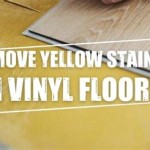Is Vinyl Plank Flooring Safe For Pets?
The safety of flooring materials for pets is a significant concern for pet owners. Vinyl plank flooring, known for its durability, affordability, and aesthetic appeal, has become increasingly popular. However, questions regarding its safety for cats, dogs, and other household pets remain. This article examines the various aspects of vinyl plank flooring to assess its safety profile for animals, considering factors such as material composition, potential toxins, surface texture, and maintenance requirements.
Vinyl plank flooring, typically composed of multiple layers, aims to replicate the look of hardwood or tile while offering enhanced resilience. The core layer often consists of PVC (polyvinyl chloride), which provides water resistance and structural stability. Above this, a printed decorative layer provides the desired aesthetic, and finally, a wear layer protects the flooring from scratches, dents, and fading. Understanding the composition of each layer is essential for evaluating the potential risks associated with pet exposure.
The primary concern regarding the safety of vinyl plank flooring often revolves around the presence of volatile organic compounds (VOCs) and phthalates. VOCs are chemicals emitted as gases from certain solids or liquids, and phthalates are plasticizers added to PVC to increase its flexibility. Both substances have been linked to various health issues in humans and animals, particularly respiratory problems and hormone disruption. Therefore, careful consideration must be given to the manufacturing processes and certifications of vinyl plank flooring products.
VOC Emissions and Pet Health
Volatile organic compounds (VOCs) are a significant concern in assessing the safety of indoor environments, especially concerning sensitive populations like pets. Many building materials, including some types of vinyl plank flooring, can emit VOCs into the air. These emissions can vary significantly depending on the manufacturing processes, the specific chemicals used, and the age of the flooring. Pets, due to their smaller size and closer proximity to the floor, may be more susceptible to the adverse effects of VOCs compared to humans.
The potential health effects of VOCs on pets can range from mild irritation to more severe long-term problems. Short-term exposure may result in symptoms such as eye, nose, and throat irritation, coughing, and difficulty breathing. Some pets may also exhibit signs of lethargy or changes in appetite. In the long term, chronic exposure to high levels of VOCs has been linked to respiratory issues, liver and kidney damage, and an increased risk of certain types of cancer in animals. Therefore, choosing low-VOC or VOC-free vinyl plank flooring options is crucial for pet owners.
Several certifications and standards exist to help consumers identify flooring products with low VOC emissions. Look for certifications such as FloorScore, Greenguard Gold, and UL GREENGUARD. These certifications indicate that the product has been tested and meets stringent standards for VOC emissions. Selecting vinyl plank flooring that carries one of these certifications can significantly reduce the risk of exposing pets to harmful chemicals.
Furthermore, proper ventilation during and after installation is essential for minimizing VOC exposure. Opening windows and using air purifiers can help dissipate any initial emissions from the new flooring. It is also advisable to follow the manufacturer's recommendations regarding cleaning and maintenance to avoid introducing additional chemicals into the indoor environment.
Phthalates and Endocrine Disruption in Animals
Phthalates are a group of chemicals often used as plasticizers in the production of vinyl flooring, enhancing its flexibility and durability. However, concerns exist regarding the potential health effects of phthalate exposure, particularly on the endocrine system. The endocrine system, responsible for regulating hormones, is crucial for various bodily functions, including growth, reproduction, and metabolism. Several studies have indicated that phthalates can disrupt these hormonal processes in both humans and animals.
The primary route of exposure to phthalates from vinyl flooring for pets is through ingestion or absorption. Pets may ingest small amounts of phthalates by licking or chewing on the flooring. Additionally, phthalates can be released into the air and absorbed through the skin or respiratory system. Once inside the body, phthalates can interfere with hormone receptors, potentially leading to a range of health issues. These issues can include developmental problems, reproductive abnormalities, and an increased risk of certain cancers.
To mitigate the risks associated with phthalates, pet owners should opt for phthalate-free vinyl plank flooring options. Many manufacturers now produce flooring that is specifically labeled as "phthalate-free" or "ortho-phthalate-free." These products utilize alternative plasticizers that are considered safer for both humans and animals. When selecting vinyl plank flooring, carefully review the product specifications and certifications to ensure that it does not contain harmful phthalates.
Beyond selecting phthalate-free flooring, maintaining a clean living environment can further reduce the risk of exposure. Regularly cleaning the flooring with pet-safe cleaning products helps remove any surface contaminants. It is also important to prevent pets from chewing on the flooring, as this can increase the likelihood of phthalate ingestion. Providing pets with appropriate chew toys and ensuring adequate enrichment can help discourage destructive chewing behaviors.
Surface Texture and Pet Safety
The surface texture of vinyl plank flooring plays a crucial role in pet safety, influencing factors such as slip resistance, paw comfort, and ease of cleaning. A smooth, slippery surface can pose a risk of falls and injuries, particularly for older pets or those with mobility issues. Conversely, a highly textured surface can be difficult to clean and may trap dirt and debris, potentially harboring bacteria and allergens.
Slip resistance is a primary consideration for pet owners. Pets, especially those with longer hair or less paw grip, can easily slip and fall on smooth surfaces. This can lead to sprains, strains, and other injuries. Therefore, choosing vinyl plank flooring with a slightly textured surface is recommended. A textured surface provides better traction, reducing the risk of slips and falls. It is advisable to test the slip resistance of the flooring before installation, particularly if the pet has a history of mobility problems.
Paw comfort is another important aspect of surface texture. Some vinyl plank flooring options can be quite hard and unforgiving underfoot, which may be uncomfortable for pets, especially those with sensitive paw pads. Opting for a thicker vinyl plank with a cushioned underlayment can provide added comfort and reduce strain on the pet's joints. This is particularly beneficial for larger breeds and pets with arthritis or other joint problems.
Ease of cleaning is essential for maintaining a hygienic environment for pets. Vinyl plank flooring is generally easy to clean; however, highly textured surfaces can be more challenging to maintain. Dirt, hair, and other debris can become trapped in the crevices, requiring more frequent and thorough cleaning. Choosing a vinyl plank with a smooth or lightly textured surface that is easy to wipe down is recommended. Regular cleaning with pet-safe cleaning products can help prevent the buildup of bacteria and allergens, promoting a healthier living environment for both pets and their owners.

Is It Safe To Have Vinyl Flooring And Pets The Carpet Guys
Vinyl Flooring For Dogs Pets Pet Proof Plank Tile

What S The Best Dog Friendly Flooring America
Vinyl Flooring For Dogs Pets Pet Proof Plank Tile

Pet Friendly Flooring Guide The Best Floors For Paws Claws And Hooves

Vinyl Vs Laminate Flooring For Homes With Pets Powerhouse Hcs

What S The Best Flooring For Dogs

Is Luxury Vinyl Flooring Good If You Have Pets Charlotte Nc Outlook
Vinyl Flooring For Dogs Pets Pet Proof Plank Tile
Vinyl Flooring For Dogs Pets Pet Proof Plank Tile
Related Posts








